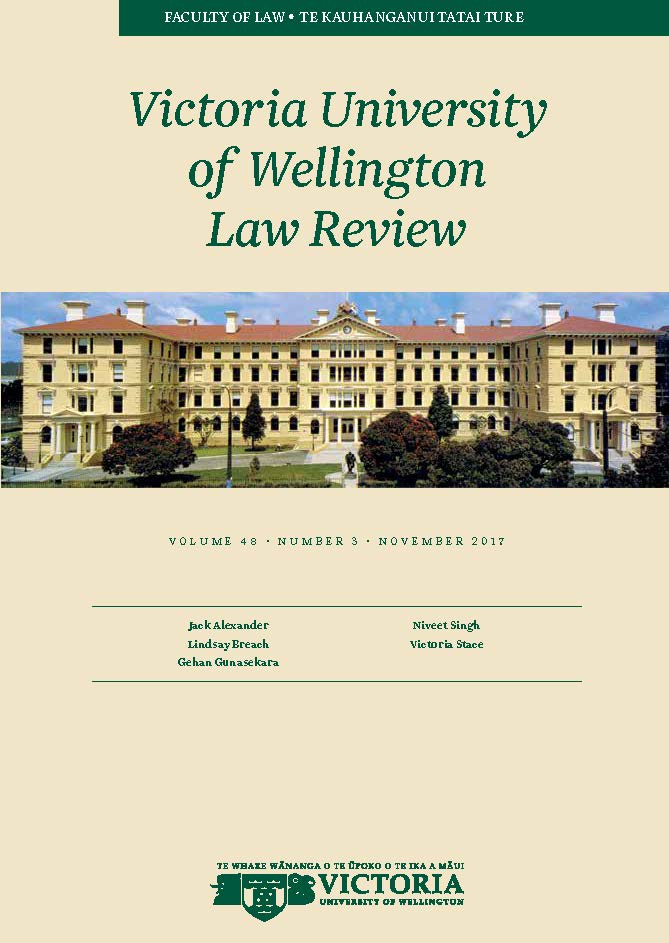"Busybodies, Cranks and Mischief-Makers": Revisiting Finnigan v New Zealand Rugby Football Union and the Pro Bono Ethos
DOI:
https://doi.org/10.26686/vuwlr.v48i3.4734Abstract
Finnigan v New Zealand Rugby Football Union has assumed a prominent position in New Zealand's relatively short legal history. This is in part due to the legal principles established by the case – it is recognised as a leading case in both administrative law and sports law. The case is perhaps more notable for its social and historical significance – it is fondly remembered as "the case that stopped the tour". This article argues that the case is significant on two further levels. It is a little-known fact that the case was taken on an entirely pro bono basis. The premise of this article is that, without the pro bono ethos of the lawyers involved, one of New Zealand's most famous cases would never have eventuated. The second little-known element of the case is how the plaintiffs' lawyers tactfully avoided the common law doctrine of maintenance. The true significance of Finnigan v New Zealand Rugby Football Union is only realised when the case is examined from a wider perspective than has been done previously.
Downloads
Downloads
Published
How to Cite
Issue
Section
License
Authors retain copyright in their work published in the Victoria University of Wellington Law Review.


